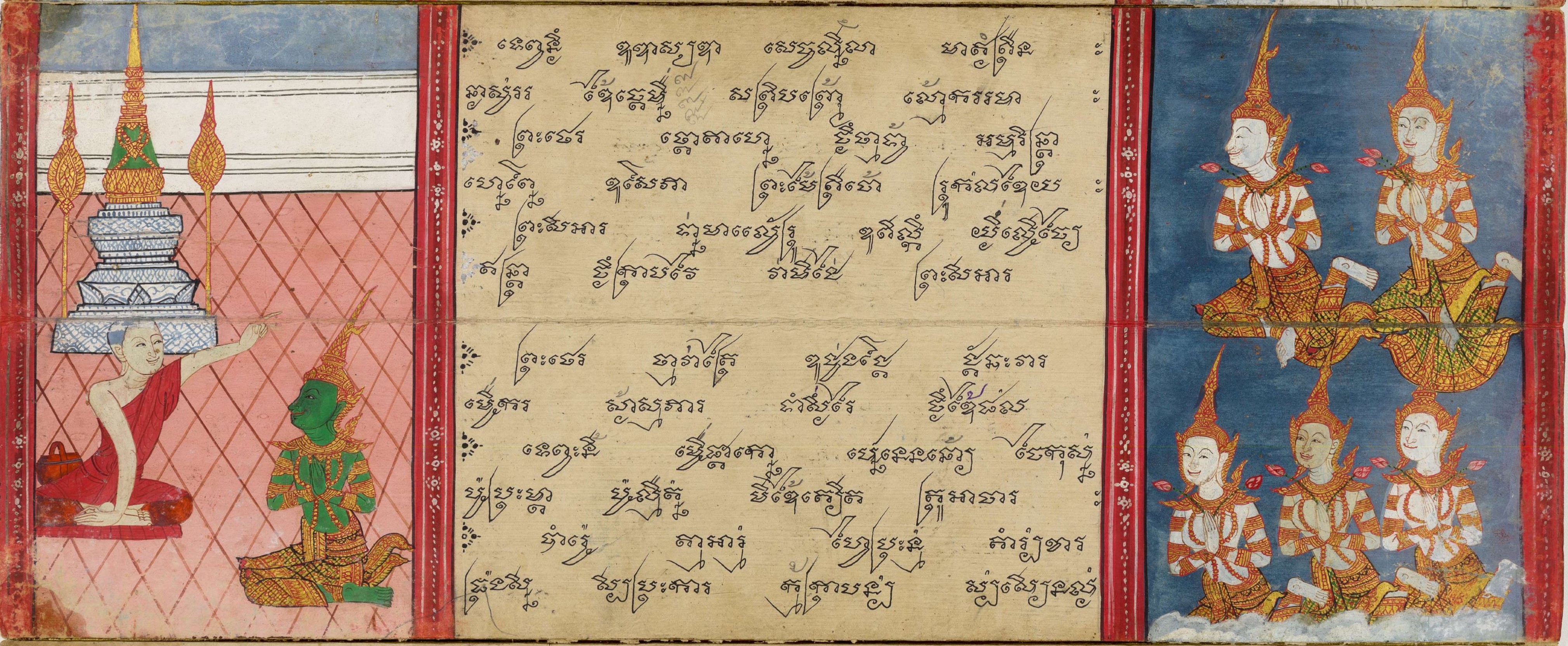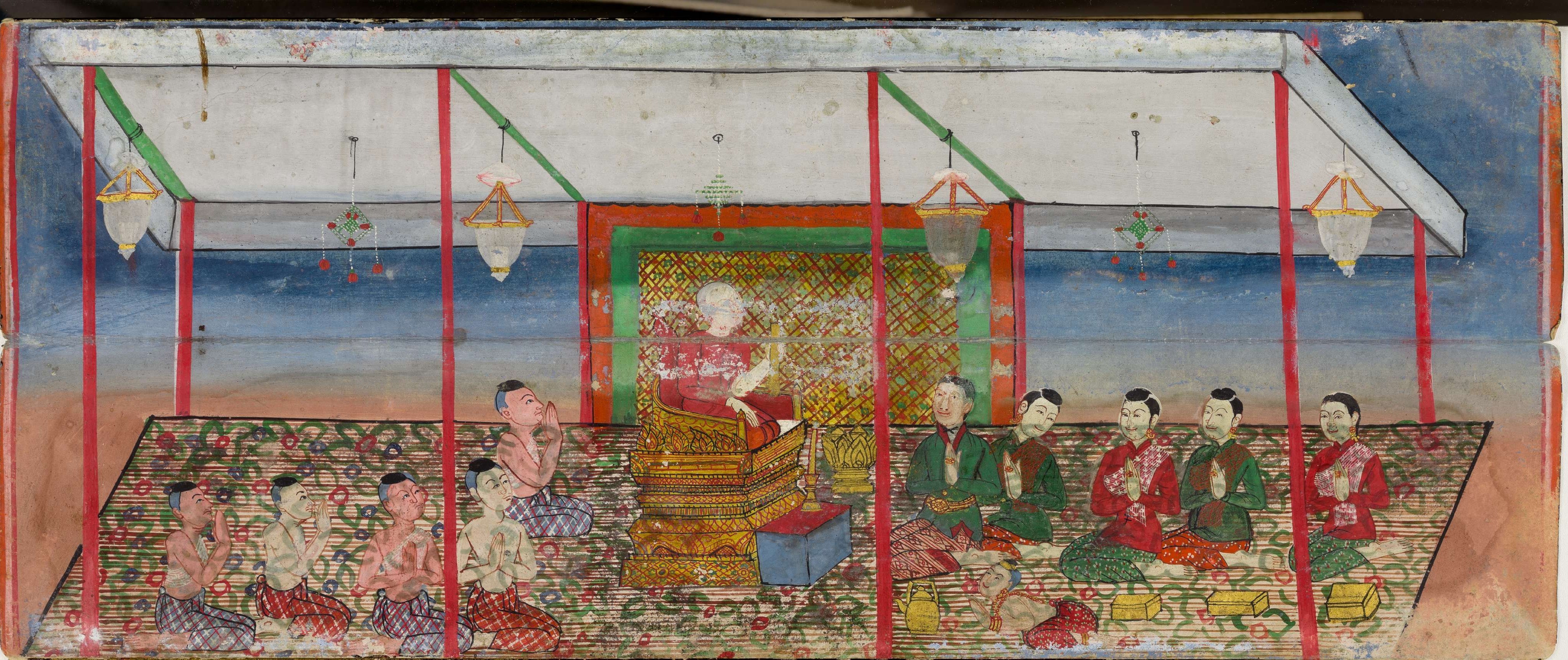Forever a Family
The Remarkable Colophon of Cod. orient. 509
Peera Panarut
Lesen Sie hier die deutsche Version dieses Texts.

SUB Hamburg
In the Buddhist tradition of Southeast Asia, a manuscript preserving religious texts is an object of merit-making, with the sponsors and scribes expecting to gain merit as a result of producing and donating such manuscripts. Cod. orient. 509 was also obviously produced for the purpose of religious donation, but its colophon also reveals some interesting information on the people who commissioned it.
Cod. orient. 509 represents a specific genre of Siamese (Thai) folded books called Phra Malai manuscripts, as it preserves the text of Thai poems known as Phra Malai Klòn Suat in a relatively large, greyish khòi-paper leporello manuscript. The writing throughout the manuscript is in Khòm script, which is a variation of the round-shaped Khmer Mul script that developed in Thailand, especially in religious and ritual contexts, from the 13th century. The main text, Phra Malai Klòn Suat, written in Pali and Thai, narrates the journey of the monk Phra Malai to the Hells and then to the Heavens, where he conversed with Indra and Ariya Metteyya. He later tells the people about his experiences.
National Library of Thailand
Of the different versions of the narratives of Phra Malai known in Thailand, it is Phra Malai Klòn Suat as found in Cod. orient. 509 that seems to be the most popular, since it survives in more than 100 manuscripts dating from the 18th to the 20th century. Even though authorship and date of composition are unknown, Phra Malai Klòn Suat was often chanted in monastic rituals in central and southern Thailand. This is the reason why numerous copies of the text were sponsored and commissioned by monks and laymen alike over the centuries for the purpose of monastic donation. Many Phra Malai manuscripts also bear coloured miniatures, sometimes depicting scenes from Phra Malai’s story (for example from the Hells and the Heavens), which also reflects the economic status of the sponsors, such as in the case of manuscript Cod. orient. 509. On some illustrated pages, the writing is even written decoratively with gold.

SUB Hamburg
According to its colophon written in Thai language and Thai script and separated visually from the main text, Cod. orient. 509 was sponsored by a Siamese nobleman (Luang Si Thip Phakdi), his wife, and their daughter in 1874. The couple expressed their wish to be husband and wife again and again in every rebirth. The colophon reads: “On Thursday, the first day of the waxing moon in the ninth month of the year Cunla Sakkarat 123[6], the Year of the Dog, the sixth year of the decade [corresponding to Thursday 13 August 1874], we, Luang Si Thip Phakdi and wife, Mae Hòm, and our child Chün, have donated this Phra Malai manuscript for the religion. When we die in the future, may we meet again in the next lives and always be a married couple and a family. May we gain enlightenment in the future.”
On the following page, the colophon of Mae Hòm, the wife, continues: “For the future, … I, Mae Hòm, the wife of Luang Si Thip Phakdi, express the wish to be the wife of Luang Si Thip Phakdi. May he be my husband alone!”
Cod. orient. 509 not only preserves the complete text of Phra Malai Klòn Suat in refined handwriting and with a set of beautiful coloured paintings; its colophon also records the voice of a woman from 19th-century Thailand, a polygynous society where men tended to have multiple wives. A religious book such as the Phra Malai manuscripts was not necessarily produced to create merits to help the person reach Nirvana; it could also be used by a married couple to wish for eternal union in their future lives.

SUB Hamburg
